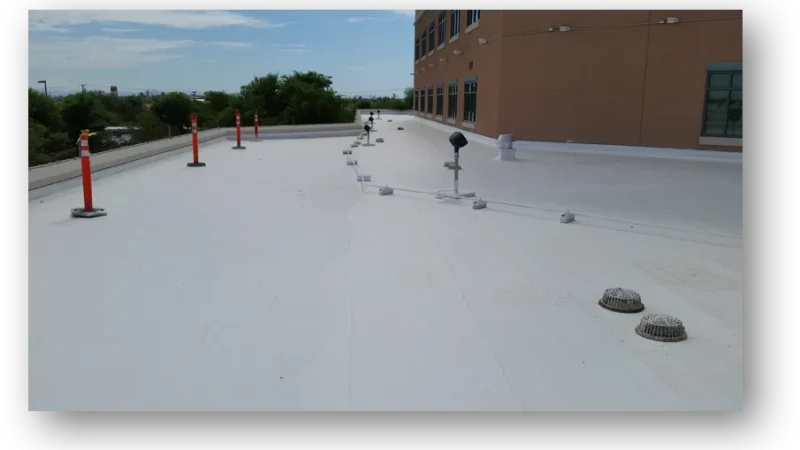What Does a Concrete Contractor Do?
A concrete contractor is a business person. They need to know how to bid on a job, work within set deadlines, and have the right equipment for the task at hand.

They must also be able to read blueprints and understand what they are doing as they work on-site. Many get into the business through an apprenticeship program or with on-the-job training.
A concrete contractor is someone who contracts with property owners or general contractors to pour and finish concrete floors, walls, and other structures. These professionals should have a thorough understanding of the properties of different types of concrete mixes, as well as the relevant building codes for the area in which they work. Concrete contractors should also have a solid grasp of construction materials, tools, and equipment.
In order to start working as a concrete contractor, individuals should first decide which type of construction they want to focus on. There are many different types of concrete projects, and each requires a specific set of skills and equipment. For example, residential construction might include projects like patios and driveways, while commercial construction may involve a larger scale of work such as office buildings or schools.
Another way to improve one’s qualifications is to participate in a certificate program from the American Concrete Institute (ACI). These programs encourage concrete professionals to learn about new topics and techniques, so they can offer their clients the best possible service.
It’s also important for concrete contractors to have strong relationships with suppliers. This will ensure that they can get the right amount of concrete for each project, and that it arrives on time. In addition, a strong supplier relationship can help a concrete contractor save money by taking advantage of discounts and coupons.
Experience
A concrete contractor needs to have a lot of experience in the field in order to do well. They should have the skills to take on all sorts of projects, from patios to sidewalks to driveways and more. This experience is what will allow them to work quickly, accurately, and efficiently. They will also know how to handle any special needs your project may have, such as ADA compliance.
Another aspect of experience is the knowledge of specialized equipment. For example, a professional contractor should know how to use laser levels and total stations, which are far more accurate than traditional string lines. They should also have a variety of tools like walk-behind trowels, power screeds, and drills, among others. It is important for you to check their website or contact them to find out what types of equipment they have available.
Lastly, the contractor should have a good understanding of what permits are needed for commercial jobs. They should also be able to obtain these permits promptly, before starting the job. This will help protect you from wasting time and money on a project that the city does not approve.
Becoming a concrete contractor can be an excellent career choice, especially if you enjoy labor-intensive work. However, you should not enter this field without a degree or extensive on-the-job training. There are a few different paths to becoming a concrete contractor, including attending technical school or joining a union. If you are not interested in getting a bachelor’s degree, you can start out as a basic laborer and work your way up to a crew leader or foreman. There are also several apprenticeship programs that offer instruction and 5,000 hours of paid on-the-job training.
Equipment
A concrete contractor needs a variety of tools and equipment to get the job done. Some of the most common tools include a hand trowel, shovel, wheelbarrow and broom. A good concrete contractor also has a set of professional tools to make the job easier and more accurate, including a level and tape measure.
For larger projects, concrete contractors will build forms out of wood or metal to hold the wet concrete. They will also lay down wire mesh or rebar to reinforce the concrete. They may also mix and place aggregate (like sand and gravel), fluid cement, water and other ingredients in the forms. Once the concrete is ready to be poured, the concreting contractor will remove the forms and finish the surface to desired specifications.
Insurance policies are an important part of any business, and concrete contractors are no different. Some of the most important policies for a concrete contractor include general liability, workers’ compensation, tools and equipment coverage and builders risk insurance. General liability is protection from lawsuits if a third party is injured or their property is damaged due to your company’s work.
Workers’ compensation insurance helps pay for medical bills and lost wages if an employee is injured at work. It’s essential for any business with employees. Tools and equipment coverage protects your specialized tools and machinery from theft or damage while in storage or transit to a project site. It’s especially useful if you frequently take your equipment to a job site in a truck or trailer. Using a project management software that is geared toward concrete contractors can help you collect valuable data from your foreman’s daily reports and seamlessly transfer it into Cost-to-Complete or Labor Efficiency reports to help you make more informed decisions.
Licenses
Licensed concrete contractors can offer you more peace of mind that they have the experience and knowledge to meet your project goals. They are also committed to upholding high industry standards and will be held accountable if they violate any construction laws. In addition to licensing, the best concrete contractors have insurance that covers their operations. This includes general liability, workers’ compensation, and property damage.
Licensing requirements vary by state, but all concrete contractors should have a contractor’s license to perform concrete work. This requires a minimum of 18 years of experience and passing an exam. It also includes having a business registered with the local government, providing proof of worker’s compensation, and paying a bond.
Workers’ compensation protects you and your employees in case they are injured on the job. It pays for medical bills and lost wages, and it may help cover legal fees if someone sues over an injury. A good concrete contractor will have this coverage in place as soon as they hire their first employee.
Property damage insurance protects you in the event of an accident that damages a client’s property. This could include things like tearing down walls or structures, moving heavy items, and even cleaning up the aftermath of an accident. This coverage is often included in a general liability policy, but some contractors may choose to purchase it as an add-on.
Other types of insurance a concrete contractor might have include tools and equipment coverage, which protects their expensive gear if it is stolen or damaged. This is an optional add-on for most general liability policies, but it’s important to talk with your insurer about the specific coverage you want for your business.
Insurance
A concrete contractor needs to have a good insurance policy in place to protect the business from expensive legal costs that could put it out of operation. These policies are designed to cover the expenses of any damages incurred by third parties due to work done by the company. The type of coverage that a concrete contractor gets may vary depending on the company’s specific risk factors.
General liability insurance is a standard part of the coverage that most concrete companies need. This covers third-party damages caused by a work-related incident, such as when a client trips over concrete tracked across their floor. A concrete contractor should also obtain a commercial property insurance plan to protect their equipment from damage and theft. It is often cheaper to bundle this with general liability insurance into a business owners policy (BOP).
Workers’ compensation is usually necessary for concrete contractors that have employees because of the high risks involved in the industry. This will pay for medical bills and lost wages when an employee is injured at work. It is also recommended for a concrete contractor to carry commercial auto insurance to cover the company vehicles. This includes any trucks or vans used for business purposes.
Other insurance policies that concrete contractors might want to consider include latent defect insurance, which can pay for structural issues that may arise months after the completion of a project. Errors and omissions insurance, sometimes called professional liability insurance, is another option that may help cover financial losses to clients if a company’s work is deemed to be deficient.
A final policy to consider is workers’ rehabilitation insurance, which can pay for lost income if an employee is injured or disabled while working at a job site. The cost of these policies can vary, and some insurance providers will require that the concrete contractor provide proof of qualifications for coverage. An independent insurance agent can help the company determine the best insurance packages for its unique risk factors.


